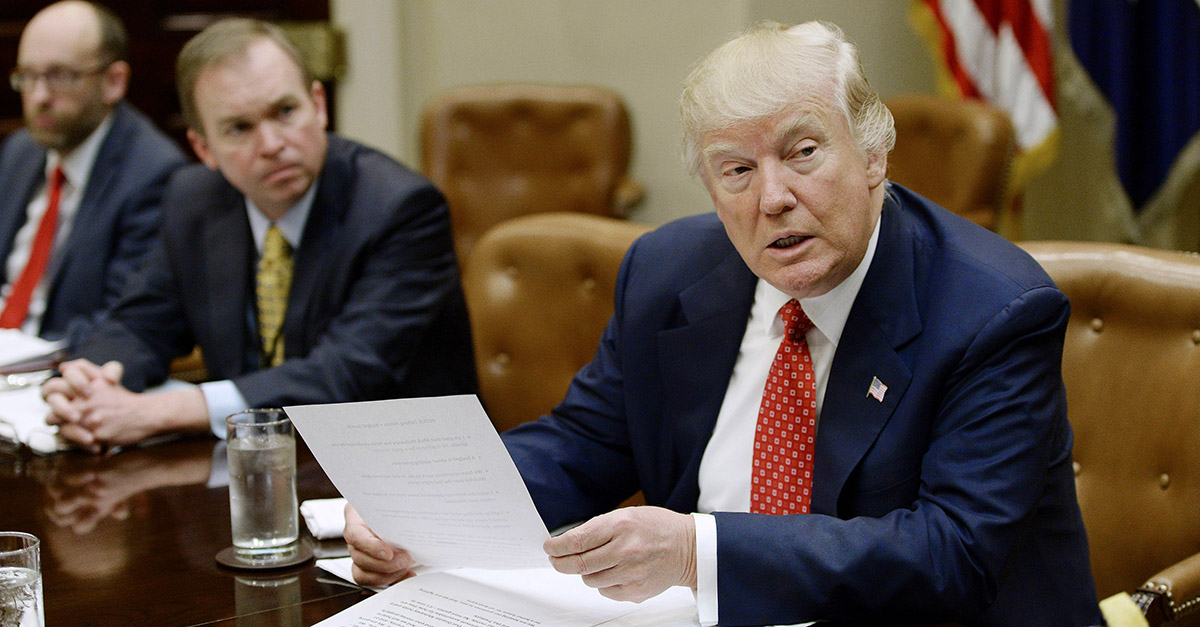The tea party’s single greatest accomplishment was a piece of legislation, the Budget Control Act of 2011, that at last required Congress to curb its spending habit. Under the BCA, a supercommittee of experts and lawmakers was to be assembled and charged with putting together a deficit reduction package. If one couldn’t be hammered out, indiscriminate budget cuts, called the sequester, would activate, and subsequent spending caps would ensure that Washington was put on a long-term course towards fiscal prudence.
Videos by Rare
It was a good idea, though the budget restrictions were never as tight as they might have been. Congress passed the BCA, the supercommittee descended into squabbling, and the sequester blade came whistling down. Lawmakers still might have tackled the deficit and defused sequestration, but they decided instead that a far more productive use of their time would be to spend the next five years whining about the fact that they had to shrink the budget at all, and set about doing just that. The BCA remained settled law, barely, as Congress pillowed its deepest cuts with the 2013 Ryan-Murray budget and circumvented its budget caps through fiscal chicanery.
Now, if Donald Trump has his way, the last vestiges of the BCA are about to be scrubbed out. The Trump administration has announced that its first budget will hike defense spending by $54 billion, a historic 9 percent increase that will rocket through the budget caps and erase the sequester. Those increases will be offset, administration officials crow, with an equivalent $54 billion cut to discretionary spending and especially the foreign aid budget. That might be the most blatantly dubious math since Orwell’s “2+2=5.” Even if Trump drained the entire non-security foreign assistance budget—shuttering the Peace Corps, eliminating all development assistance—that’s still only $25.6 billion, less than half of what he’s proposing for the Pentagon.
Other piggy banks come up equally empty. As my friend Jonathan Bydlak points out on Facebook, the entire State Department budget is $38 billion and the entire EPA budget is $8 billion; combine the two and you still don’t have enough. The government’s real gaping wounds are, of course, Social Security and health entitlement spending, but Trump has already pledged not to pluck a single dollar from either one. Where else? That isn’t a rhetorical question—I really don’t know how this can be done without a seismic restructuring of government.
The problem is that too many voters (and too many Republicans) hear that defense cuts are coming and assume our soldiers are about to be deployed off to Iraq without rations. Not so. Back in Virginia lies the Pentagon, a government agency that’s just as bureaucratic and bloated as the Department of Education, one whose mission has crept far beyond keeping the country safe, as its massive civilian workforce and untold ranks of contractors should evince. By its own estimate, the Defense Department over the next five years is scheduled to accrue $125 billion in administrative waste. Yet its accountants continue to demand more, behaving as though the slightest cut will hobble America’s operational readiness.
RELATED: Shame on John McCain for not supporting Donald Trump’s budget director nominee
It won’t. The Pentagon needs to be fully audited (which we’re already supposed to be doing), its waste needs to be rooted out, and the gunk needs to be cleaned out of its disastrous procurement system. Any additional defense funds should be conditioned on these and other internal reforms. Instead we have a promise to spend more money now with a nebulous and unfeasible pledge to spend less later on—which is how Washington has always approached the appropriations process. Donald Trump, creature of the swamp. And so we return to the usual political dynamic, with two parties that disagree only on how to be fiscally irresponsible.



